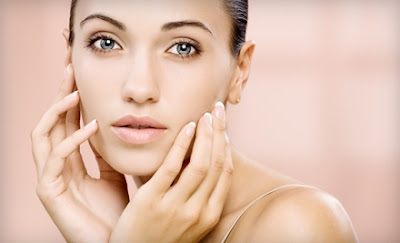What is Sensitive
Skin?
Sensitive skin means that your skin reacts to or gets
irritated easily, especially when you put products on it. Your skin may react to the application of a
product in different ways. Some symptoms
of sensitive skin include stinging, burning, itching, redness, dryness,
peeling, or scaling of skin after the application of products. Other factors that can irritate sensitive
skin include wind exposure, cold weather, or sun.
Many people may have sensitive skin, but those who already
have an underlying skin condition, like rosacea, eczema, or acne, are even more
susceptible to irritation. Because of
this sensitivity, people often try to use products that they think will be less
likely to irritate their skin. Many
times, this means using products labeled “hypoallergenic,” meaning “less
allergenic” or less likely to cause an allergic reaction.
Are Hypoallergenic
Products Better for Your Sensitive Skin?
Hypoallergenic products can still be irritating to your
skin. Companies often use the term
hypoallergenic when products are fragrance-free or don’t contain ingredients
that are considered to be the most common allergens, but any component of a
product has the potential to be an irritant to your skin. This is especially true if you have an
underlying skin condition that makes your skin already sensitive. However, just because a product says
hypoallergenic, it does not mean it is NOT IRRITATING. There is no product proven to be non-irritating
to everyone.
What Can You Do to Prevent
Irritation if You Have Sensitive Skin?
Test all products before using them—apply a pea size amount
of product to a small area on your face for a few days and watch for a
reaction, i.e. red/angry, irritated, or itchy skin. If you have a reaction, then that product is
not right for you!
- It won’t work to test the product on your arm (or any other body part). The face is more sensitive than other areas of the body, thus you need to test products on your face.
Dr. Talakoub may recommend as part of your treatment
stopping your products to see if they are the cause of, or contributing to,
your skin irritation.
Sensitive skin is hard to treat, and it can be difficult
when looking for skincare. If your skin
gets easily irritated, please call the office to schedule a consult with Dr.
Talakoub to discuss what products she would recommend for your skin.






